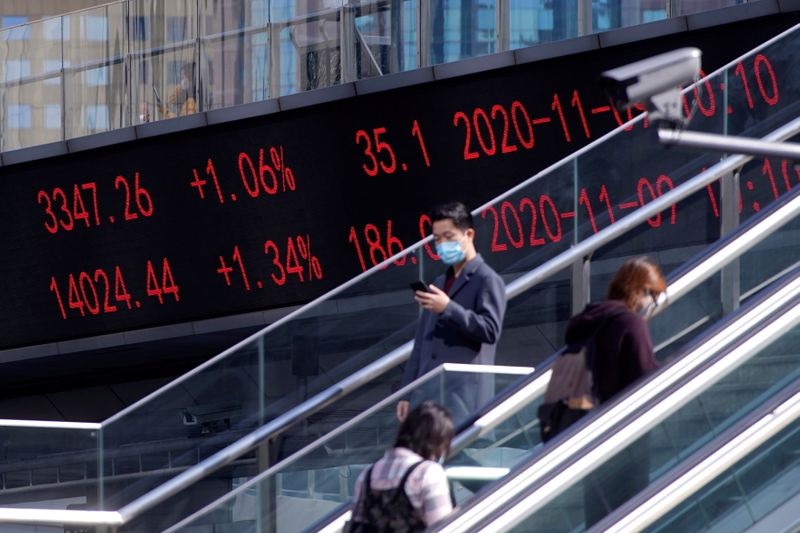Asia stocks dip amid election jitters, China buoyed by positive PMI
Most Asian markets fell on Tuesday as traders remained largely risk-averse before a hotly contested U.S. presidential election later in the day, while Chinese markets were supported by strong business activity data.
Focus was also on a meeting of China’s National People’s Congress this week, which is expected to yield more cues on fiscal spending.
Regional markets took middling cues from a negative overnight session on Wall Street, as anticipation of a tight race between Donald Trump and Kamala Harris kept investors on edge. U.S. stock index futures steadied in Asian trade, with voting set to begin later on Tuesday.
The Federal Reserve is also widely expected to cut interest rates later this week. Chinese stocks rise on positive PMI, stimulus watch
China’s Shanghai Shenzhen CSI 300 and Shanghai Composite indexes rose 0.8% each, while Hong Kong’s Hang Seng index added 0.3%.
Sentiment towards China was buoyed by purchasing managers index data showing the services sector grew much more than expected in October.
The reading comes after Beijing announced a string of major monetary and fiscal measures in the past month, and drummed up hopes that Asia’s biggest economy would improve amid increased government support.
The Standing Committee of China’s NPC kicked off a four-day meeting on Monday, with the body widely expected to approve more fiscal spending to support growth in the coming years. Australian stocks fall with RBA in focus
Australia’s ASX 200 fell 0.5% ahead of a Reserve Bank of Australia meeting , where the central bank is widely expected to keep interest rates steady.
But investors were bracing for a potentially hawkish outlook from the RBA, especially as recent data showed underlying inflation in the country remained sticky, while the labor market blew past expectations.
While the RBA is not expected to signal any more rate hikes, it is also unlikely to signal any plans to begin cutting interest rates in the near-term. Analysts at ANZ and Westpac only expect the bank to begin cutting rates by February 2025.
Broader Asian markets were mixed. Japan’s Nikkei 225 and TOPIX indexes rose 1.3% and 0.9%, respectively, as trade resumed after a long weekend.
South Korea’s KOSPI fell 0.6% as data showed consumer inflation missed expectations in October, opening the door for more interest rate cuts in the country. While such a scenario bodes well for Korean markets, they were pressured by persistent losses in the technology sector.
Futures for India’s Nifty 50 index pointed to a muted open, after the index and the BSE Sensex 30 slid over 1% each on Monday. Indian stocks were nursing steep losses in October amid heavy foreign capital outflows, as optimism over the Indian economy cooled.
Source: Investing.com
